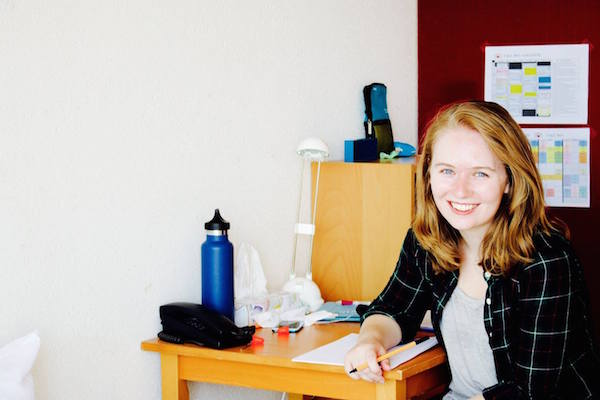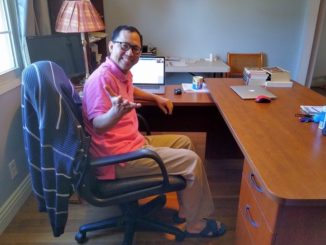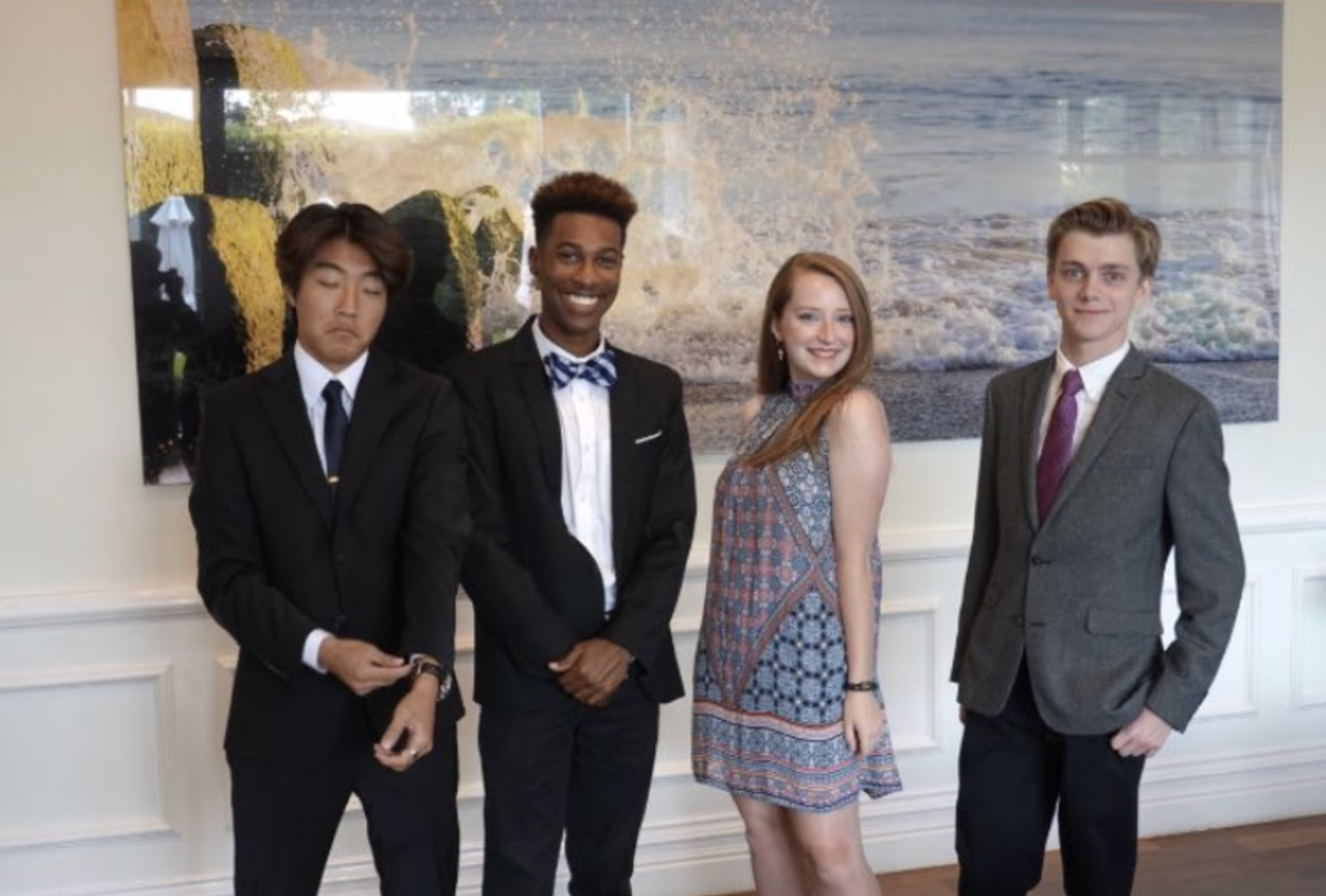
Junior journalism major Shannon Hansen expected her year abroad to be a vacation.
She envisioned easy As in all of her classes and travelling every weekend. But when she arrived in Switzerland in fall 2015, she said she had a rude awakening. Between travel and academics, she was caught in a whirlwind of stress.
This is studying abroad. Not just travelling. Not just taking classes. But doing it all at once.
Starting from New Student Orientation, Pepperdine highly encourages students to choose from their six international programs and study abroad. Students know they are going to cram tons of real-world experience into their time abroad. What they don’t know is how hard or easy their actual coursework will be. International Programs Dean Charles Hall said all programs are academically equal, but students perceive otherwise.
“While abroad, I found the academics to be more challenging and the exams to be more rigorous,” Hansen said. “It was a big challenge when trying to balance academics with travel.”
What are the statistics?
A 2016 Pepp Post poll of 67 students asked recently returned students to rank their overseas program on academic rigor on a scale of 1-10 (one being extremely easy and 10 being extremely difficult). The survey also asked students to report their GPA.
Most students ranked their program in the high 5s or low 6s. Two locations stood out — Students who studied in Switzerland ranked their program as the most difficult, with an average of 7.7. Students in Argentina ranked their program the easiest, with an average difficult of only 5.2.
Students in Argentina also self-reported the highest GPA average at 3.8, though they were within range of what students reported in Italy or Germany. Switzerland students reported the second lowest GPA at 3.47 — just below London and just above Shanghai. An official with Pepperdine’s Office of Institutional Effectiveness said the non-graduate average GPA is not public information, so it was not possible to see institutional GPA averages for the overseas programs or how they compared with sophomores who stayed in Malibu.
“The rigor was a lot less intense compared to my classes in Malibu and I’m sure compared to other programs based on conversations I’ve had with my friends in other programs,” said Logan Baldwin, junior advertising major and former student in Shanghai, China. “I think some classes were harder than others, but for the most part my classes in Shanghai weren’t as challenging or demanding.”
These statistics differ from what the IP administrators have said for years.
“We encourage all program directors to provide academically rigorous courses,” Hall said. “So yes, I believe that they are all equal in terms of rigor.”
Hall said IP ensures academic equality by hiring faculty with the same criteria as Malibu faculty. All faculty must abide by the same rules and policies. IP also analyzes course and program evaluations annually. Hall said evaluations vary each year and are not consistent.
“In other words, since there is a different set of students in each program each year, we will naturally see variations across the programs but we don’t see those variations maintained from year to year,” Hall said.
However, recently returned students compared their workloads and found there to be major differences.
“The academics in Lausanne were definitely challenging and, in my opinion, were as rigorous as Malibu classes,” said Helena Morse, junior sports medicine major and former student in Switzerland. “I think they were particularly challenging due to the busy nature of being abroad and I think that they were more demanding than other programs.”
While students in Lausanne said academics were the same as in Malibu, students in Germany and China said academics seemed easier.
“I put the least amount of effort into my classes and I got the highest GPA,” said Matthew Dorle, a junior undergraduate in the M.B.A. program and former student in Germany. “It’s a night and day difference.”
Why are the programs academically different?
Many factors contribute to the academic discrepancy among programs. One of which is the conflicting priorities among program directors.
Kenneth Waters, divisional dean of Communication, said program directors met for a retreat in Malibu and disagreed on priorities. Argentine Director Rafael Martinez De Sanzo stressed experience over academics while Swiss Director Ezra Plank prioritized academics over experiences.
De Sanzo said the Argentine program prioritizes academics above anything else and denied any disagreement.
“The first priority in Buenos Aires, and I believe in every program, is academics,” De Sanzo said. “Then afterward you can explore in experiences and so forth, you name it.”
Plank said he would not make a statement as it is against International Program policy.
“I would assume that there would be some (directors) that differ on that,” Hall said. “There’s some people that believe in academics, there should be more classroom learning than experiential learning. I personally believe you should have both.”

The program directors choose faculty and oversee all academics within their international programs.
“We often have to do some back-and-forth in terms of what their expectations are,” said Timothy Willis, divisional dean of Religion and Philosophy. “In some cases it depends on the background of the director. How much are they going to be able to pick up on? What do they understand to be signs of rigor?”
Directors not only choose faculty, but also approve syllabi. While Malibu division deans are supposed to evaluate syllabi each semester to keep courses equal, many find the task too time consuming. Michael Ditmore, divisional dean of Humanities, said he would need to approve over 50 syllabi per semester.
“I don’t review them,” Ditmore said about abroad syllabi.
The divisional deans in International Studies and Languages, Communication, and Religion and Philosophy said they will look at syllabi if the course or teacher is new to a program.
This means if a professor changes their course’s workload or class structure, the divisional deans are unlikely to notice.
“All divisional deans do read and approve syllabi and faculty who are teaching a course for the very first time, but they do not revisit those syllabi or faculty when they continue to teach the same course,” Hall said.
Hall said divisional deans are also responsible for comparing course and program evaluations each semester. However, the deans interviewed said they do not compare abroad courses, with the exception of Paul Begin, International Studies and Languages Division dean. This oversight could be the cause of possible discrepancies in course loads, tests and overall academic rigor in abroad programs.
Students said this is evident among the humanities courses offered overseas.
“In humanities, our midterms and finals consisted of in-class essays that we got to choose which topic we wanted to write about and show how much we know,” said Julia Latimer, junior political science major and former student in London. “It focused on learning a topic you were interested in, rather than bits of pieces of a wide-subject range.”
However, Morse described humanities in Switzerland as her most demanding and time-consuming class.
“The tests were completely free-response, which meant you had to recall the information, not recognize it,” Morse said. “They were very specific and we had to memorize dates and names.”
Some students found that class was easier when taught outside of the classroom. In Lausanne, students learned in a typical classroom setting. In Florence and London, teachers take students to museums during their humanities courses to take advantage of the cultural offerings.
“We learned about Renaissance painters, art, culture, the Medici and everything Italian in the classroom,” said Haley Bekins, junior biology major and former student in Florence. “Then, we would go experience it first-hand in Florence.”
Faculty plays a huge part in academic difficulty as well. Visiting faculty teach the same content as in Malibu but in less time.
“I have to be flexible because we are required to take field trips and we have a tight schedule on class days,” said Julie Smith, English professor and visiting faculty in London 2015-2016. “I might make fewer assignments or my reading assignments may be fewer, but my expectations are the same.”

Sarah Ballard, former visiting faculty in Shanghai 2014-2015, said the IP Office pressured them to keep rigor the same. Even so, she found that Shanghai grades were stronger than Malibu grades.
Ballard said the student-teacher relationship affected the grades. She felt more respected by the students because they knew her better, which led to the students putting in more effort for her class.
She also said culture was a huge contributor to academic rigor. In countries like the United Kingdom, China and Switzerland, a university professor is a highly regarded profession. Overseas professors typically teach to their own standards, so Pepperdine must work with them. In the same way, academic culture in Argentina is very relaxed, which could explain the perception that it is less rigorous.
In the past, abroad faculty varied in rigor due to differences in their contracts. Begin said some programs hire faculty on a semester-to-semester contract and so, to ensure their jobs, they cater to students.
Waters agreed with Begin but said this inconsistency changed in the last two or three years.
Hall said grades seem to get higher abroad because of the house dynamic and academic experience. Living in a house with all of one’s classmates allows for more group study and raises awareness on upcoming tests and papers. In addition, sophomores understand college courses and should perform better than they did as freshmen in the classroom when it comes to general education courses.
What is IP doing to improve?
Over the past few years, IP has taken many actions to improve the programs, Hall said. This includes firing visiting faculty in Heidelberg, asking a humanities professor in Florence to decrease rigor and sending a division dean to Lausanne to address academic discrepancies.
“If there is faculty that consistently has challenges in the classroom … and if after a while we don’t get the quality we want, then we will move on with a different faculty member,” Hall said.
Hall said problems with faculty are rare and happen mostly in the newer programs, Lausanne and Shanghai.
“The communication is improving a lot,” Begin said. “But there is a lot of trust involved.”
Nikki Winn completed this story in Dr. Christina Littlefield’s fall 2016 Jour 241 class.



